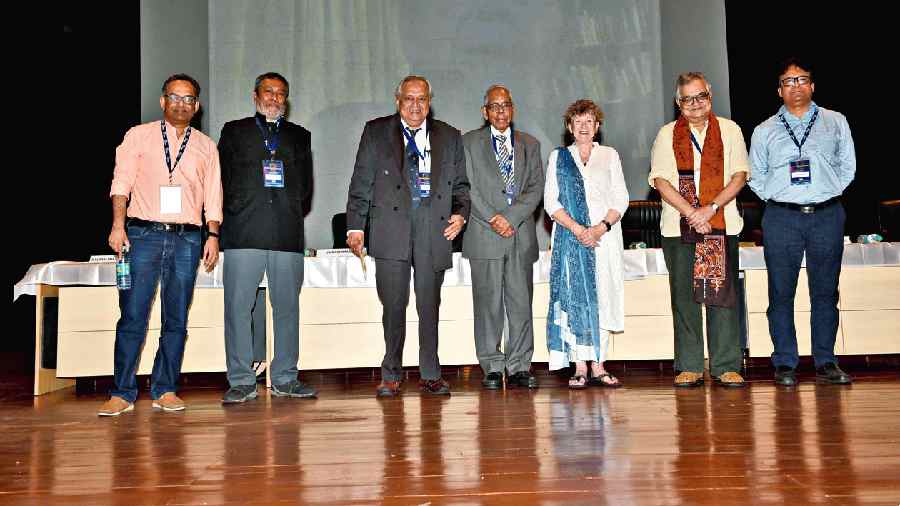India had taken giant strides in coming up with a road map on nuclear technology soon after Independence but could not make much progress because of the failure to address public concerns about its safety, said Subir Sarkar, a professor of physics at the University of Oxford.
Sarkar, an alumnus of IIT Kharagpur, was speaking at the Saha Institute of Nuclear Physics, Kolkata, on Monday. He said the fears about nuclear energy remained because agencies like the department of atomic energy (DAE) did not reach out to the people in an effective manner.
There was a need to tell people that far from being a threat, this energy “holds the key to our survival in the future”, Sarkar said.
“In that respect, it is also important that our agencies become more transparent and gain people’s trust. This institute (Saha Institute) is supported by the DAE, which has provided the means to do advanced research. Yet the DAE’s public profile could be improved,” said Sarkar.
“It could be more confident about asserting to the country what they are engaged in, why it is for public good and not have this adversarial nature of interaction with environmentalists and other concerned citizens who simply need to know the facts in order to work together. Adversarial politics does not take us anywhere.”
Sarkar, who works at Rudolf Peierls Centre for Theoretical Physics at Oxford, was in the city for a conference on Macrocosmos, Microcosmos, Accelerator and Philosophy 2020, held at the Saha Institute’s auditorium. The event was delayed by the pandemic.
Sarkar said India had failed to educate its people in understanding science and what it can do to benefit them.
“We could have been a zero-carbon economy or heading towards it much faster had we followed the game plan that had been laid out in the 1950s and early-1960s by (Homi J.) Bhabha, (Jawaharlal) Nehru and others. Instead, we are now reliant on polluting coal and oil,” he said.
Bikash Sinha, former director, Saha Institute of Nuclear Physics and the Variable Energy Cyclotron Centre, who was present at the lecture, said the apathy towards nuclear energy stemming from the lack of information among people had derailed a proposed nuclear power plant in Haripur, East Midnapore, in 2010.
“We tried our level best but failed to convince the people. It all stemmed from ignorance,” Sinha told Metro. “Ninety-five per cent of the power in France is generated from nuclear power plants,” he said.
Haripur, a village in Purba Medinipur, was among three candidate sites on the east coast that had been identified as suitable for the establishment of nuclear power stations capable of delivering 6,000MW to 9,600MW of power.
The plant could not come up because of protests by farmers and fisherfolk.
Sarkar said incidents like the one in Fukushima nuclear plant in 2011 and the Chernobyl nuclear disaster in the former USSR in 1986 built a fear towards nuclear power plants.
“Nobody died of radiation in Fukushima. It happened because of stress and other factors like accidents during the evacuation,” he said.
Roger Penrose, who had won the Nobel Prize in physics in 2020, delivered a lecture virtually at the event.
Penrose and M.K. Narayanan, the former Bengal governor, who was present at the event, released a book of Sinha’s collected works.
